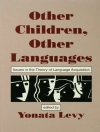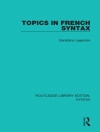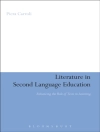Lexical errors are a determinant in gaining insight into vocabulary acquisition, vocabulary use and writing quality assessment. Lexical errors are very frequent in the written production of young EFL learners, but they decrease as learners gain proficiency. Misspellings are the most common category, but formal errors give way to semantic-based lexical errors as proficiency increases, likewise, the direct influence of the L1 also reduces in favour of more elaborated transfer mechanisms and L2 influence. The different categories of lexical errors indicate the stage of learning. This book uses a study of young EFL learners to suggest that lexical accuracy is a crucial component of writing assessment, and that lexical errors are useful in predicting writing quality.
Cuprins
Introduction: An Outline
Part I: Lexical Competence and Lexical Errors
Chapter 1. Vocabulary Acquisition in the Second Language
Chapter 2. Variables Affecting Lexical Production
Chapter 3. Vocabulary and Writing
Chapter 4. Lexical Errors in SLA
Part 2: Lexical Error Production in Young Spanish Learners’ Written Compositions
Chapter 5. Designing a Study to Explore Lexical Errors in Writing
Chapter 6. Lexical Error Production: Changes over Time
Chapter 7. Lexical Errors in Writing Quality
Chapter 8. Lexical Errors and Receptive Vocabulary Knowledge
Chapter 9. Some Concluding Remarks
Despre autor
María Pilar Agustín Llach is a lecturer at the Department of Modern Languages of the Universidad de La Rioja. Among her main research interests are the examination of vocabulary acquisition and teaching in the light of different variables such as age, gender, proficiency level, mother tongue influence, or learning context (CLIL vs. non-CLIL). Other vocabulary-related issues such as lexical errors, lexical transfer, and instruments used to measure vocabulary knowledge are included in her research.












